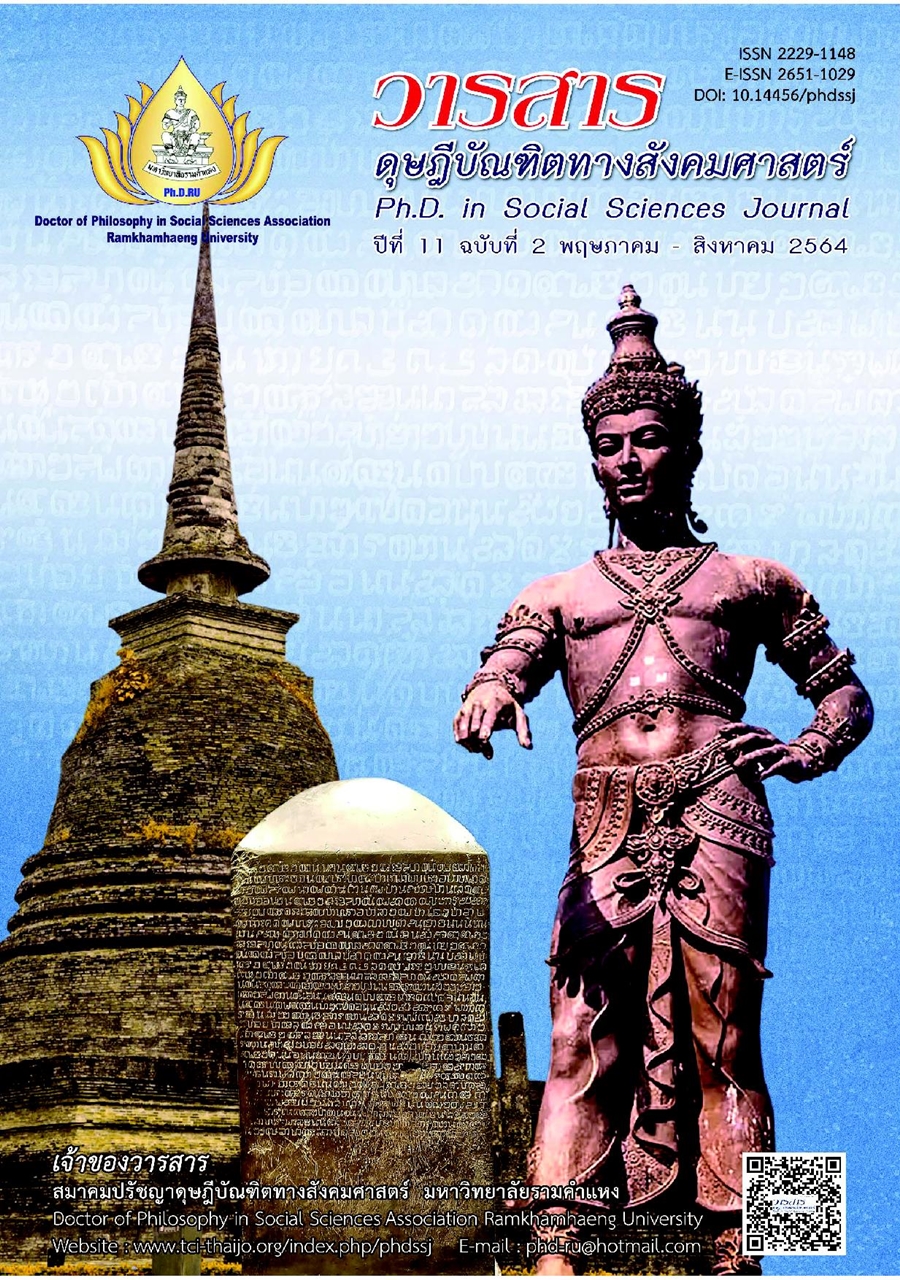Driving Forces in the Implementation of Agricultural Extension Policy: A Case Study of Participating and Non-Participating Agriculturalists in a Complete Production Cycle of the Organic Rice Development and Promotion Project in the Central Region of Thailand
Main Article Content
Abstract
This research article studies level and driving force factors of the implementation of the agricultural extension policy, structural relationship of the driving forces factor to the implementation, problems and obstacles confronting implementation, and motivation in the implementation of policy. In this quantitative research. The researcher collected a sample population of 260 agriculturalists. Using techniques of descriptive statistics, the researcher analyzed the data collected in terms of frequency distribution, percentage, mean and standard deviation. Further analyses relied on methods of inferential statistics.
Findings are as follows: The overall level of the implementation of the agricultural extension policy, the development and promotion of integrated organic rice production project into practice in general was at a high level. As for the level of factors driving the agricultural extension policy into the practice of farmers as a whole was at a high level in terms of the structural relationship of driving factors affecting the implementation of the policy into practice. The sociological variables directly influenced the positive marketing variables. The sociological variables directly influenced the policy implementation variables positively, Public administration variables directly affected marketing and the policy implementation variable with a positive It was statistically significant at the .05 level, respectively.
Article Details
Academic articles, research articles, and book reviews in the Ph.D. in Social Sciences Journal are author’s opinions, and not the publisher’s, and is not the responsibility of the Ph.D. in Social Sciences Journal Philosophy Association, Ramkhamhaeng University. (In the case that research is done on human, the researcher has to be trained in Ethics for Doing Research on Human Training and has to produce the evidence of the training).
References
Anawushsiriwongse, T. (1998). Media watch. Faculty of Communication Arts, Chulalongkorn University. [In Thai]
Angsuchoti, S., Wichitwanna, S., & Phinyopanuwat. (2014). Statistical analysis for research in social science and behavior science: Techniques for using LISREL programs (4th ed.). CDMK printing. [In Thai]
Chandarasorn, V. (2008). Theory of public policy implementation (3rd ed.). Prikwan Graphic. [In Thai]
Chimplee, C. (2014). Statistics and trends of rice growing areas of Thailand. Rice Department. [In Thai]
Hair, J., Money, A., Page, M., & Samouel, P. (2007). Research methods for business. John Wiley & Sons.
Joreskog, K. G., & Sorbom, D. (1996). LISREL 8: User’s reference guide. Scientific Software International.
Khuansuwong, C. (2017). Motivation theories. Retrieved from https://www.gotoknow.org/posts/617749 [In Thai]
Laiprakobsup, T. (2010). Political regime, business coordination, unity of rural framers, and agricultural politics in developing countries: A case study of Thailand. Doctoral Dissertation of Political Sciences, Chulalongkorn University.
Langla, L. (2008). An analysis of facilitating factors and restraining factors towards implementation for basic educational policy in school under the Office of the Basic Education Commission. Doctoral Dissertation of Education, Siam University. [In Thai]
Manklang, S. (2011). Organizational culture related to the operation of employees of Big C Supercenter Public Company Limited, Head Office. Master’s Thesis of Business Administration, Eastern Asia University. [In Thai]
Phucharoen, S. (2010). A construction of leadership characteristic development models of school administrators under the Office of Basic Education Commission. Nakhon Ratchasima Rajabhat University, Faculty of Education. [In Thai]
Plangsriskul, P. (2009). The analysis of factors affecting the success of education quality assurance policy implementation in Basic Education Schools under the Bangkok Metropolitan Administration. Doctoral Dissertation of Education, Eastern Asia University. [In Thai]
Pratan, J. (2005). Factors affecting decision making in organic rice production of famers in Changwat Ubon Rachathani. Master’s Thesis of Argricultural Extension, Khon Kaen University. [In Thai]
Sabatier, P., & Mazmanian, D. (1980). The implementation of public policy: A framework of analysis. Policy Studies Journal, 8(4), 538-560.
Sangngern, B. (2017). Characteristics of working as an effective team. Retrieved from www.gotoknow.org/posts/385878g [In Thai]
Sawetbodee, S. (2006). Factors affecting the success of drug policy implementation in private vocational schools. Doctoral Dissertation of Education, Burapha University. [In Thai]
Sukthanarak, P. (2013). The academic affairs administration of Baan Bueng Cluster 1 under the Chonburi Primary Educational Service Area Office 1. Master’s Thesis of Education, Burapha University. [In Thai]
Thandee, D. (1995). State and development. Chulalongkorn University Press. [In Thai]
Van Meter, D. S., & Van Horn, C. (1975). The policy implementation process: A conceptual framework. Administration & Society, 6(4), 445-488.
Warapornvimonchai, K. (2011). Factors affecting the learning organization perception of Narsuan University personnel. Master’s Independent Study of Education, Narsuan University. [In Thai]
Yeamnaiyana, P. (2009). The analysis of factors affecting the SMART SCHOOL policy implementation in basic education schools under the Bangkok Metropolitan Administration. Doctoral Dissertation of Education, Eastern Asia University. [In Thai]


